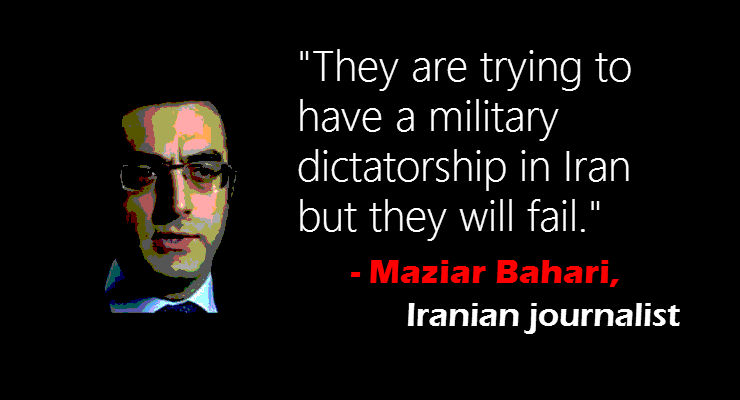
The United States says it is “deeply concerned” by reports that Iran has arrested a lawyer who defended a religious minority member executed by Iranian authorities on Monday for allegedly killing policemen.
In a tweet posted Tuesday, U.S. State Department spokeswoman Heather Nauert said Washington is concerned that the lawyer, Zeynab Taheri, was reportedly detained for “disturbing” Iran’s public opinion.
“We call for her immediate release and (an) end of the Iran regime’s persecution of the Gonabadi Dervishes,” Nauert said. The executed man whom Taheri defended, 51-year-old bus driver Mohammad Salas, was a member of Iran’s Gonadabi Dervish community, a minority religious sect.
Iran hanged Salas on Monday at Raji Shahr prison near Tehran after convicting him of using a bus to kill three police officers during an anti-government protest by Dervishes in the capital in February. Salas confessed to killing the policemen during a trial that concluded in March, but rights activists said he had been tortured into making that confession.
The main overseas news site covering Iran’s Gonadabi Dervishes, Majzooban Noor, reported Taheri’s arrest on Tuesday, saying the prosecutor of the second branch of Tehran’s Culture and Media Court charged her with disseminating lies, anti-government propaganda and disturbing public opinion. Majzooban Noor did not specify the source for its report, which rights activists shared on social media.
Several rights groups focused on Iran have said Taheri released an audio recording last month, in which a man thought to be Salas denies the charges against him. The recording was posted on a Twitter account that the groups said belongs to Taheri. The account continued to post and retweet messages on Tuesday after reports emerged of Taheri’s arrest, and it was not clear who was in control of it.
In a further twist to the reports about Taheri, Iran’s state news agency IRNA said it “interviewed” the lawyer on Tuesday and quoted her as denying that she planned to release evidence of Salas’ innocence.
IRNA said posts on messaging app Telegram had suggested that Taheri would publish such information. But it said Taheri stated that such posts had nothing to do with her.
The European Union criticized Salas’ execution on Tuesday, one day after the United States used stronger language to condemn Tehran.
In a statement, EU foreign affairs spokeswoman Maja Kocijancic said the trial of the bus driver “raises serious questions about the respect for fundamental rights and due process” in Iran. She also reiterated the EU’s long-held opposition to the death penalty “under all circumstances.”
U.S. Secretary of State Mike Pompeo issued a tougher-worded statement on Monday, saying Washington “condemns” Iran for executing Salas. In a tweet, he also urged U.S. partners and allies to join in “condemning” what he called a “brutal and unjust execution.”
Iranian authorities have said five security personnel were killed and more than 300 people were arrested during the February 19-20 clashes between police and the Dervishes, also known as Sufis.
The Dervish protesters had been demanding the release of arrested members of their community and the removal of security checkpoints around the house of their 90-year-old leader, Noor Ali Tabandeh.
Dervishes have long complained of harassment by Iran’s Shi’ite Islamist rulers, who view them as heretics.
In a Tuesday interview on the set of VOA Persian’s Early News program, U.S.-based Iranian Dervish rights activist Hamid Gharagozloo said Iranian authorities feel threatened by Tabandeh’s popularity.
“Tabandeh has spent 60 years fighting for the rights of people who cannot defend themselves and won praise from Iranian lawyers, activists and philosophers,” said Gharagozloo, a member of the London-based International Organization to Preserve Human Rights.
Gharagozloo said Tehran also sees a threat in Dervish beliefs. “That is not because Dervishes are violent or want to topple the regime. Dervishes’ philosophy is based on helping humankind – a constructive philosophy that Iranian leaders fear will cause the fall of their militiamen who subscribe to violence.”
This report was produced in collaboration with VOA’s Persian Service.
Leave a Reply